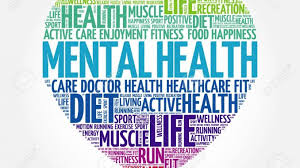How do you define health?

What is health? No, wait…. seriously…. what actually IS it?
It’s one of the hottest topics today. It’s one of the most valuable assets we have. But take a moment to think about what it means to be healthy.
Did you know that there is a real definition (that’s recognized by all major medical textbooks in the world)?
“Health is the ability to function at 100% mentally, physically, and socially.” I wonder how that definition differed (or didn’t) from yours?
Here’s what my standard of being healthy is for myself:
Health is about how well we FUNCTION, not about how we FEEL.
It’s about how well the body ADAPTS when it is challenged. We can’t avoid every single “bad” thing in life or prevent every injury. But when the body is strong, it will be able to adapt and respond (not crumble and fall apart).
It’s dynamic and constantly changing.
How scientists define health
The definition of health varies among different scientific fields, but it is generally defined as a state of complete physical, mental, and social well-being, rather than just the absence of disease or infirmity. The World Health Organization (WHO) defines health as “a state of complete physical, mental, and social well-being and not merely the absence of disease or infirmity.”
In the field of medicine, health is often defined as the ability of an individual to perform daily activities without pain, discomfort, or limitation. It also encompasses the individual’s ability to maintain physical and mental functioning, to adapt to changing circumstances, and to live a satisfying life.
In the field of public health, health is seen as a resource that can be optimized through interventions and policies aimed at promoting health and reducing health risks. This includes addressing individual and community-level risk factors such as poverty, unhealthy lifestyles, and exposure to environmental hazards.
In short, scientists and healthcare professionals generally define health as a state of overall physical, mental, and social wellbeing, which can be positively influenced by individual and community-level factors.
How psychologists define health
Psychologists generally define health as a state of psychological well-being that enables individuals to cope with the normal stresses of life, work productively, and contribute to their communities. This definition of health goes beyond just the absence of mental illness or emotional distress, and encompasses a wider range of psychological factors such as resilience, life satisfaction, and the ability to form meaningful relationships.
From a psychological perspective, health involves a positive relationship between the individual and their environment, and a sense of control and meaning in life. It also involves the ability to adapt to life changes and challenges, and to maintain a healthy balance between physical and mental functioning.
Psychologists may use a variety of assessment tools and techniques, such as self-report measures, interviews, and standardized tests, to assess psychological health and well-being. They may also employ therapeutic interventions, such as cognitive-behavioral therapy or psychotherapy, to help individuals improve their mental health and overall well-being.
In short, psychologists define health as a state of psychological well-being that enables individuals to effectively cope with life challenges and to achieve a sense of meaning and fulfillment in their lives.
How philosophers define health
Philosophers have approached the definition of health from various philosophical perspectives, and there is no single definition that is universally accepted. However, some philosophical definitions of health emphasize certain aspects of well-being, such as the ability to pursue one’s goals and engage in meaningful activities, and to experience positive emotions and relationships.
From a classical Greek perspective, health is seen as a harmonious balance between the body and the soul. In this view, physical health and emotional well-being are interconnected, and both are necessary for a person to experience overall health.
From a contemporary philosophical perspective, health is often defined in terms of well-being, which encompasses both physical and psychological aspects of health. In this view, health is seen as a valuable aspect of human life that should be promoted and protected.
In the field of bioethics, health is often defined as a state of complete physical, mental, and social well-being, and is considered a fundamental human right. This view emphasizes the importance of access to quality healthcare and the protection of individual autonomy and dignity in health decision-making.
In short, philosophers have approached the definition of health from various perspectives, but many definitions emphasize the importance of overall well-being, including physical and emotional health, and the ability to pursue meaningful goals and relationships.
How Chinese define health
In Chinese wisdom, health is often defined in terms of balance and harmony. The concept of health in traditional Chinese medicine (TCM) is rooted in the belief that the body must maintain a balance of energy (known as Qi) and the natural forces of yin and yang in order to function properly.
According to TCM, health is maintained when Qi flows smoothly throughout the body and is in balance with yin and yang. This balance can be disrupted by factors such as stress, poor diet, or physical injury, which can lead to illness and imbalance.
In Chinese wisdom, physical health is closely tied to emotional and spiritual health, and all three are seen as interrelated aspects of overall well-being. In order to promote health and prevent illness, TCM emphasizes the importance of maintaining a healthy lifestyle, including regular exercise, a balanced diet, and stress management techniques.
In addition, TCM practitioners may use a variety of therapeutic techniques, such as acupuncture, herbal remedies, and massage, to restore balance and promote health. These treatments aim to stimulate the body’s natural healing processes and restore the flow of Qi to promote overall well-being.
In short, according to Chinese wisdom, health is defined in terms of balance and harmony between the body, mind, and spirit. Maintaining this balance is seen as essential for physical and emotional well-being and can be promoted through a healthy lifestyle and various therapeutic techniques.
In general, being healthy means that you’re always trying to be a tiny bit better than you were yesterday!









